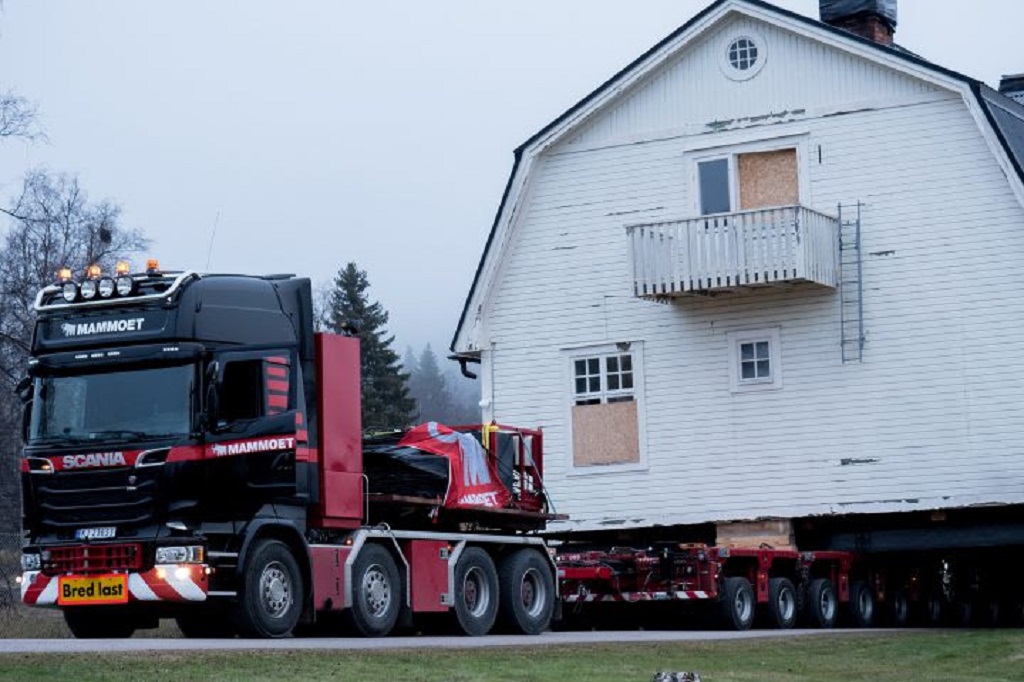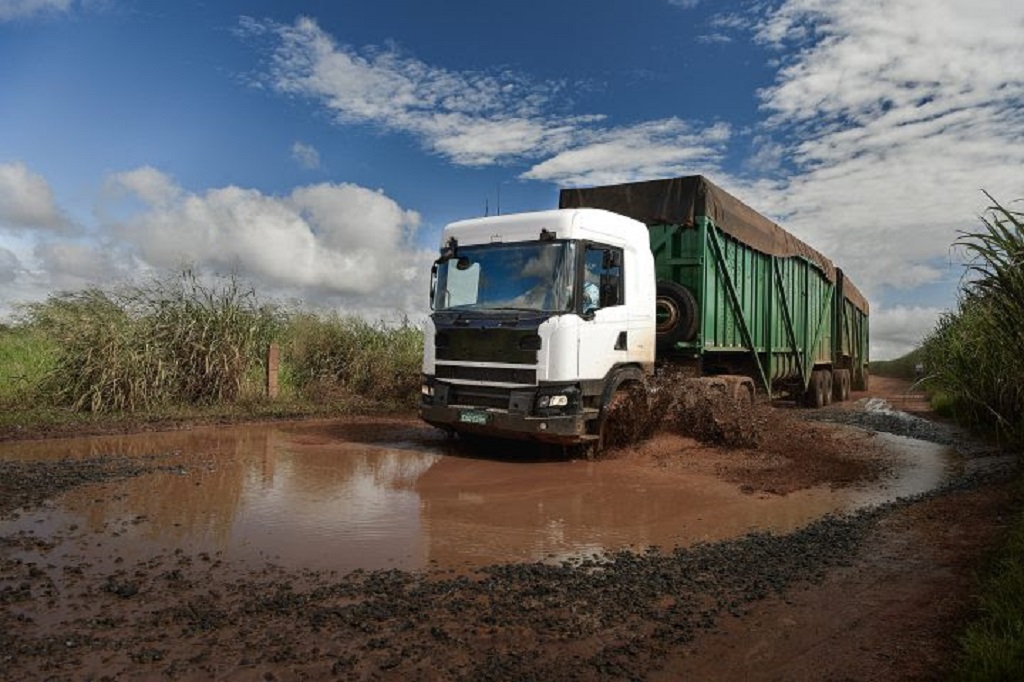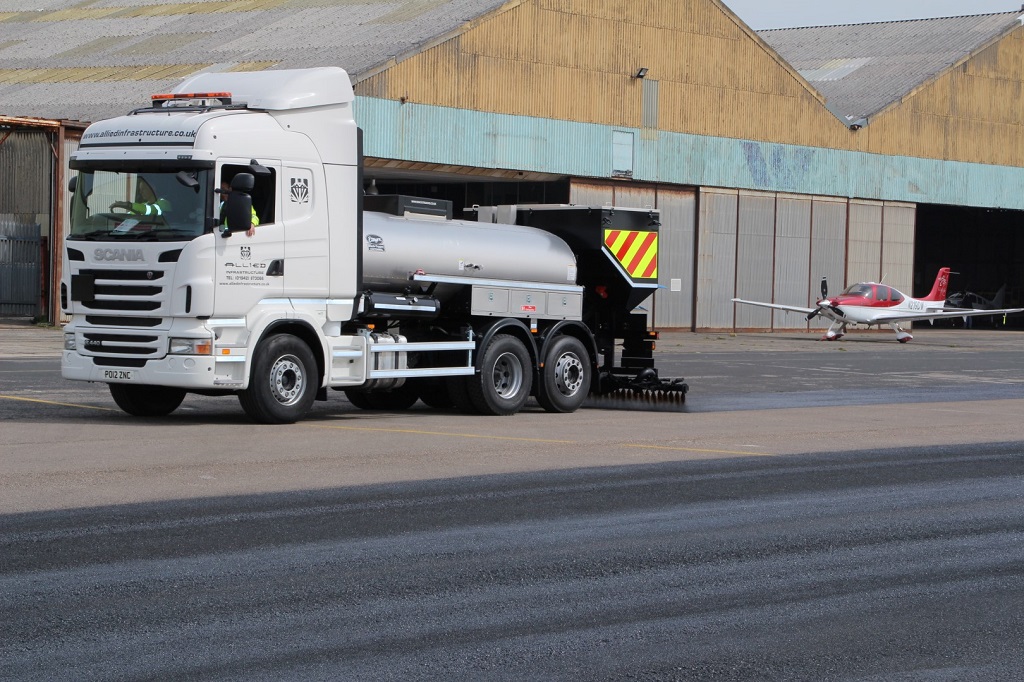On an icy October morning in Malmberget, a small Swedish mining town just north of the Arctic Circle, local residents have gathered to witness an unusual spectacle – an entire neighbourhood being picked up and carted seven kilometres away, house by house.
The project, a joint undertaking by Swedish mining giant LKAB, Dutch heavy haulage company Mammoet and Swedish construction firm NYAB, will see 30 houses and apartment buildings, the biggest weighing in at 230 tonnes, transported to the nearby village of Koskullskulle. While many buildings in the town have been or will simply be dismantled as part of a decades-long urban transformation, LKAB has chosen to preserve a number of historical buildings, the oldest dating to 1909, at the request of Gällivare municipality.
Culturally significant
“We have decided we want to save them for cultural and historical reasons. These are also some of the oldest houses in Malmberget and were built for the LKAB workers,” says Maritha Mossberg, communications officer at LKAB, explaining that apartments in these houses will be available for rent.
Using a team of Scania trucks, including a Scania R 620 V8 outfitted with an Allison automatic transmission for heavy haulage, Mammoet transports the houses to their new neighbourhood once the initial prep work has been done and the buildings have been lifted from their foundations.
18 axles, 144 wheels
After backing it up underneath each house, Mammoet’s team slowly raises the 63-tonne, 18-axle Nicolas MHD trailer, balancing the weight of each house evenly on the trailer’s 144 wheels before securing the load and pulling away. “The trailer can take 36 tonnes per axle maximum,” explains Mammoet driver Trond Friis, putting the trailer’s capacity at above 600 tonnes. A generator that sits on the back of the truck powers the trailer’s hydraulics and steering systems, and a technician who sits on the front end of the trailer manages those systems during transport.
While the specially equipped Scania R 620 has been approved for loads of up to 250 tonnes, for the larger houses Mammoet also attaches a second truck to the rear of the trailer to assist with both pushing and braking. Working quickly, Mammoet can cover the entire seven kilometre distance in less than an hour once each house has been loaded.
Decades-long transformation
Fourteen of the buildings were moved in October, with the rest scheduled for transport in 2017. The project is the result of LKAB’s plans to expand iron ore extraction underneath the town, whose history has, quite literally, been shaped by iron ore mining, which has been taking place here since the 18th century. Apart from the town’s name, which means “The Ore Mountain,” visitors might be tipped off to the local industry once they notice the giant pit that splits the town in two.
While Kaptensgropen, or “The Captain’s Pit” as it is called, will eventually be filled in, underground mining work will continue to displace the town, with the centre expected to be cleared by 2032. Residents, whose livelihoods are dependent on mining production, will move to Koskullskulle or the larger town of Gällivare as Malmberget is transformed.
“We are so lucky that we don’t have to create a town. We already have a town just a few kilometres from Malmberget. Gällivare will grow, Koskullskulle will grow, and Malmberget will disappear,” says Mossberg. “The mine, LKAB, and the town are dependent on each other. So no town without the mine – without the mine, no town.”









